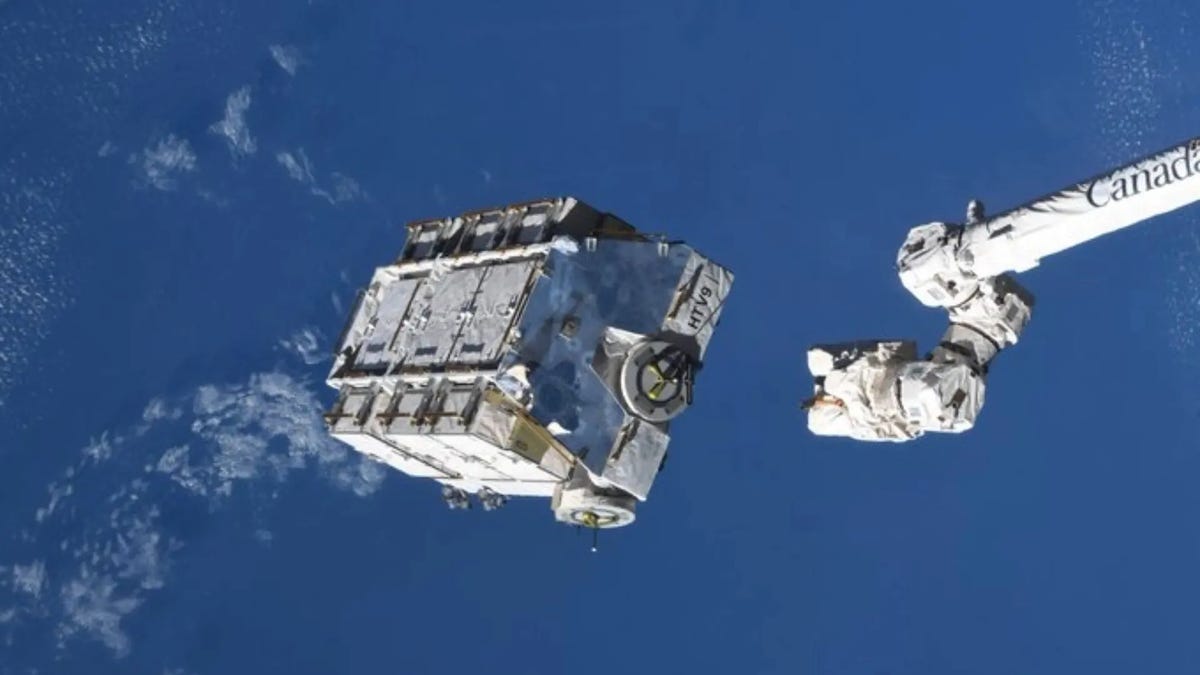Falling Space Junk: What Happens When It Hits Your Home
On March 8, an unexpected event occurred in Naples, Florida, when a cylindrical object fell from the sky and crashed through the roof of a family home. The homeowner, Alejandro Otero, suspected that the object came from space but was unsure of how to get NASA’s attention and seek assistance.
Seeking Assistance
Otero took to social media and other outlets to express his concerns, as his attempts to contact NASA directly had not yielded any response. Eventually, NASA became aware of the situation and retrieved the object for analysis. Interestingly, the timing of the object’s reentry coincided with that of a larger piece of space debris, a 2.9 ton pallet containing discarded batteries from the International Space Station.
Thanks to Otero’s proactive approach in reaching out online and to the media, the small fragment of space debris that landed on his property was swiftly addressed. However, the incident raises important questions about what to do in such situations.
Dealing with Space Junk
The risk of being hit by space debris is small but not negligible. Every year, hundreds of man-made objects reenter Earth’s atmosphere, with the potential for surviving debris to land on or near inhabited areas. Unfortunately, there are no clear guidelines for individuals facing such circumstances.
Jonathan McDowell, an astrophysicist at the Harvard–Smithsonian Center, emphasized the lack of standard protocols for reporting suspected space debris incidents. He highlighted the importance of reaching out to the appropriate organizations for assistance.
The Aerospace Corporation, a non-profit research and development center, often collaborates with government agencies like NASA and the U.S. Space Force’s Space Systems Command to address such events. Their expertise in investigating reentry debris makes them a valuable resource for individuals like Otero seeking guidance.
Legal Implications
According to the 1967 Outer Space Treaty, the ownership of space objects, even when they land on Earth, remains unchanged. Individuals who encounter such debris are not entitled to claim ownership. Moreover, holding onto space debris can pose risks due to potential hazardous materials.
In cases where space debris causes damage, the launching country is typically liable for compensation under the 1972 Liability Convention. However, determining liability can be complex, especially when multiple entities are involved in the object’s launch and maintenance.
Recent incidents, such as the 1983 dispute between Canada and the USSR over damage caused by a malfunctioning satellite reentry, illustrate the legal complexities of space debris incidents.
Future Risks
As space activities and the number of objects in orbit increase, the potential risks associated with falling space debris also grow. While the odds of being hit by such debris are currently low, ongoing studies suggest a potential increase in future risks.
A 2022 study predicted a 10% chance of casualties resulting from falling rocket parts in the next decade, highlighting the need for enhanced mitigation strategies. With space exploration advancing rapidly, addressing the risks posed by space debris is becoming increasingly important.
Moving forward, proactive measures, clear protocols for reporting incidents, and international cooperation will be essential in mitigating the impact of space junk on Earth’s inhabitants.
Image/Photo credit: source url





